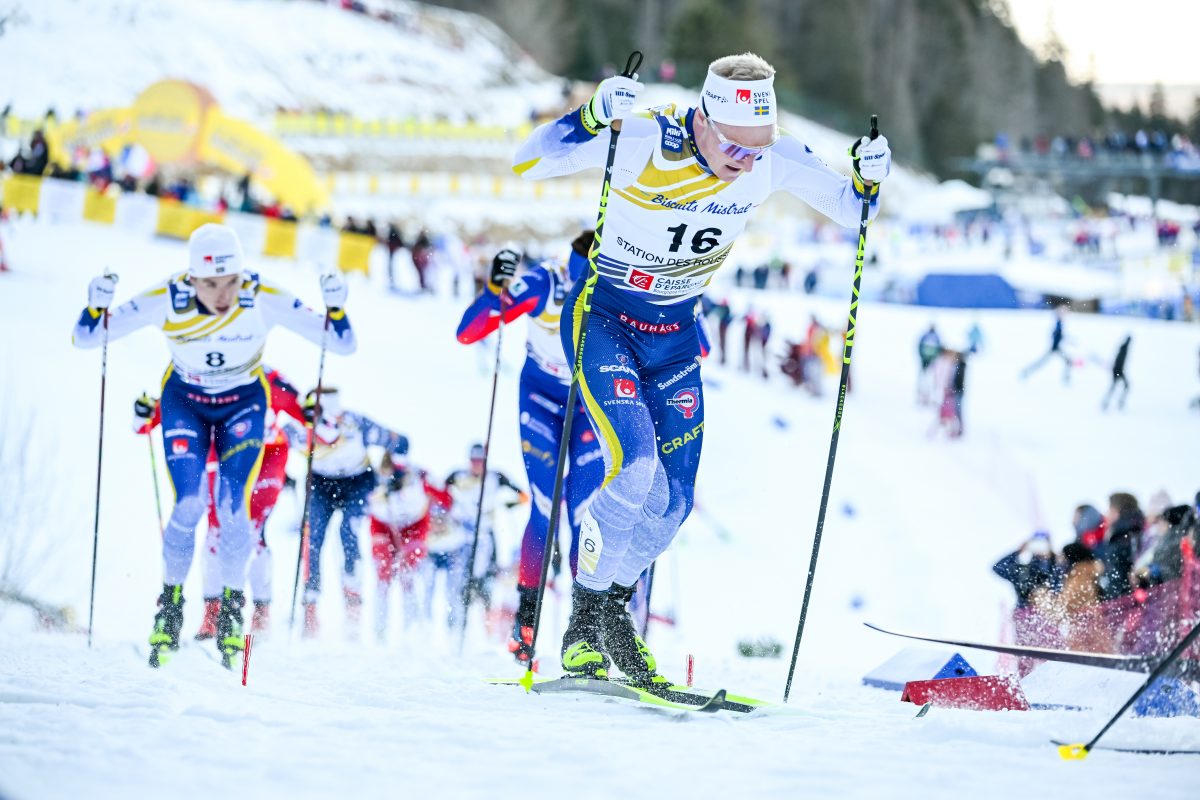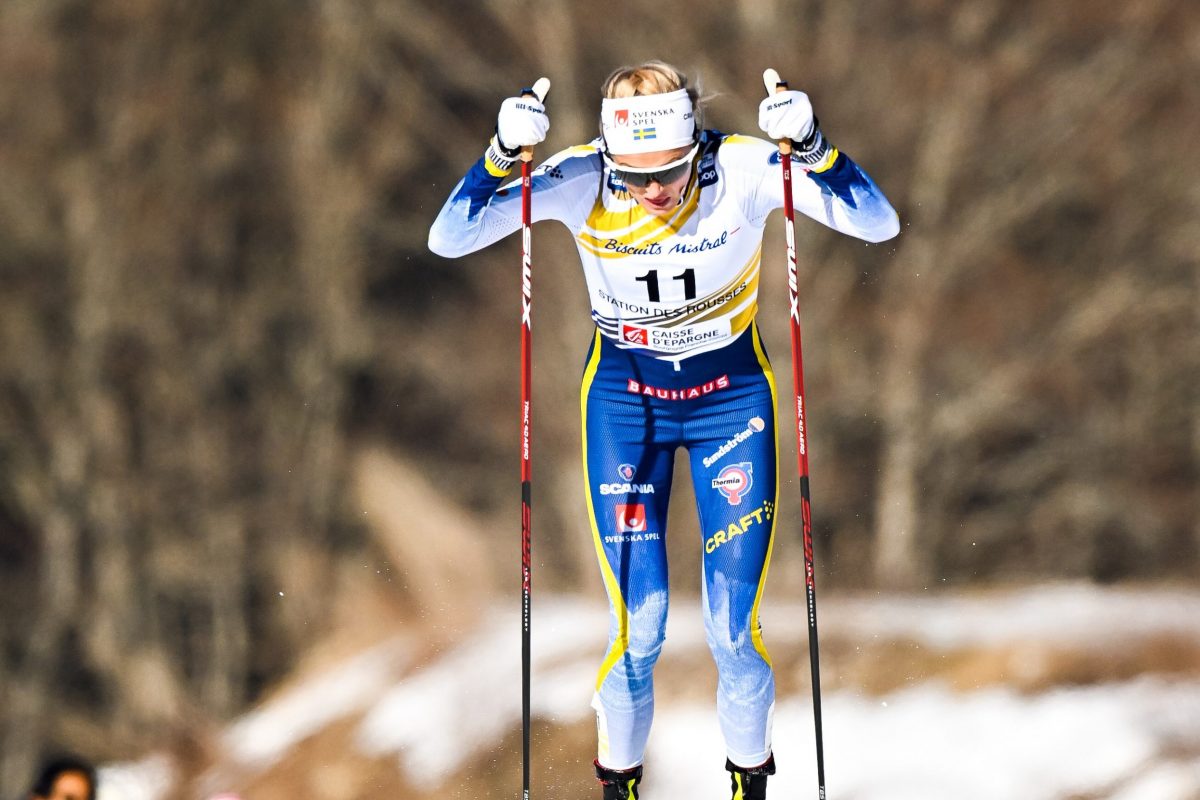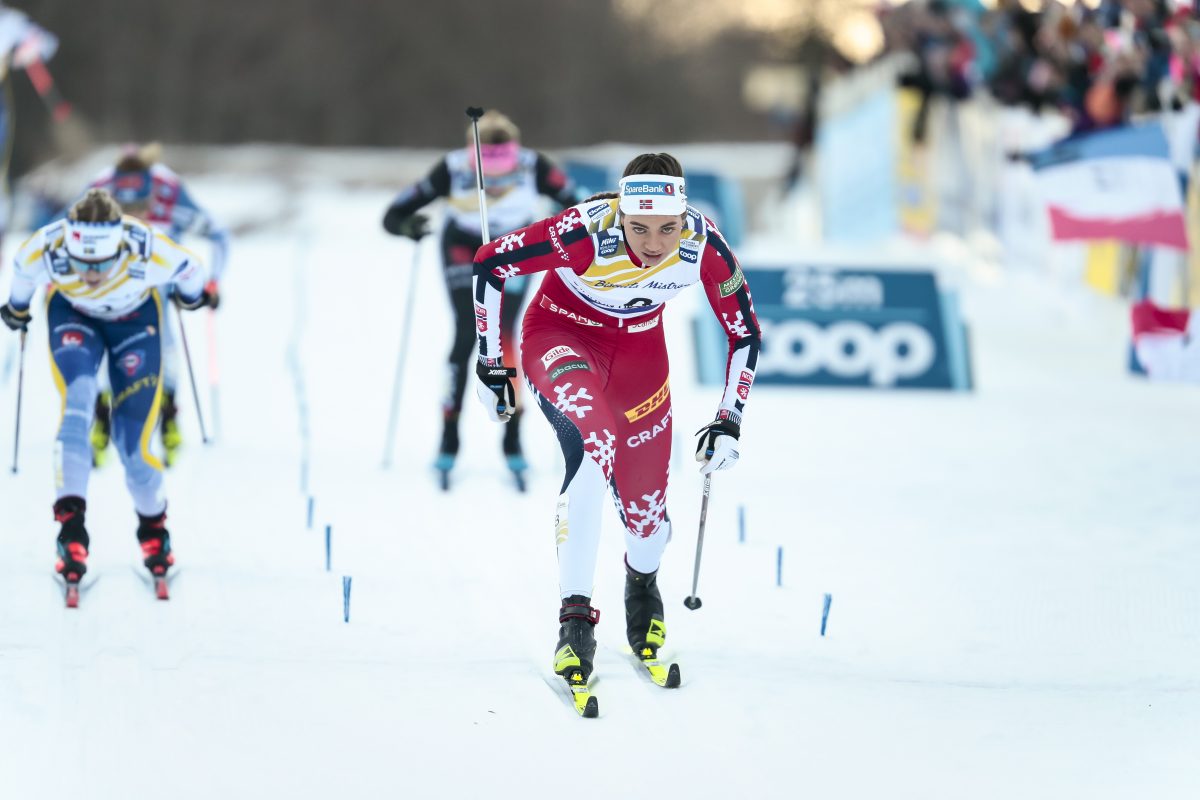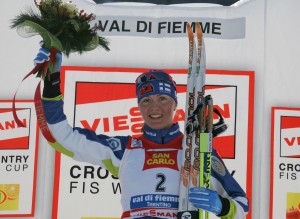
Want to win a race at World Championships or the Olympics? Then you might want to stay away from the top step of the Tour de Ski podium.
Of the 32 World Championship and Olympic individual gold medals awarded over the past six years, just two of them have gone to athletes who won the Tour de Ski earlier in the year: Finland’s Virpi Kuitunen, who won the 30 k classic at World Championships in Japan in 2007, and Polish star Justyna Kowalczyk, who won the 30 k classic at the Vancouver Olympics in 2010.
Other Tour winners, including Germany’s Tobias Angerer and the Czech Republic’s Lukas Bauer, have subsequently collected silver and bronze medals at major championship races, but failed to capture the most coveted prizes.
The Tour is still a relatively new phenomenon: there have been just four editions—and eight winners, male and female—preceding a major championship.
As a result, teams are still searching for the best way to keep their athletes at peak form for both events. But they’re “getting closer to a solution,” said Vidar Løfshus, the Norwegian cross-country ski team’s director.
“It’s possible, but I think what you need is a good plan,” Løfshus said in a phone interview Monday.
The Tour de Ski hangover is a trend mirrored in another analysis that looked at the winners of the last men’s World Cup races before the Olympics and World Championships.
The analysis—done by a Norwegian commentator, Jann Post—showed that the winners of the World Cups had failed to win an Olympic or World Championships race since Finland’s Mika Myllylä in 1999.
When it comes to the Tour, Løfshus said, teams have begun to adjust their training and racing plans to account for the grueling nature of the event, which consists of as many as nine races in 11 days, in two or three different countries.
After watching several athletes succumb to illness after completing the Tour, Løfshus said that his squad has scaled back the racing schedules for those taking part.
This year, only two of Norway’s 12 Tour starters also competed in World Cups in Canada earlier this month, Løfshus said; other
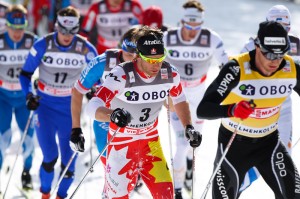
stars with high Tour aspirations like Switzerland’s Dario Cologna and the Czech Republic’s Lukas Bauer also sat out.
“A lot of people skipped the World Cups abroad, because it was too exhausting to do all the racing,” Løfshus said.
Løfshus was adamant that winning the Tour shouldn’t preclude victories at World Championships or the Olympics, and he said that Norway’s two top skiers, Marit Bjørgen and Petter Northug, were both planning to compete in the 2013 edition, before the Sochi Games.
But Løfshus added that in addition to being careful about racing too much, athletes need to avoid the distractions that stem from Tour success, like parties and commitments to sponsors.
“The focus needs to be on training and upcoming championships,” he said. “There’s a lot of other things going on after [the] Tour de Ski: press, sponsors…you need to have the plan in your training, and you need to have the plan to handle things going on afterwards.”
The Numbers
FasterSkier looked at the results of the podium finishers in the four editions of the Tour de Ski preceding major championships, in 2007, 2009, 2010, and 2011.
Only two winners, Kuitunen and Kowalczyk, went on to win gold medals. However, out of 27 finishes by Tour winners at subsequent championship events, 11 of them resulted in medals—or roughly 40 percent.
Kowalczyk fared especially well at the 2011 World Championships in Oslo—after winning the Tour, she went on to capture two silver medals and a bronze, even though she failed to secure a gold. That year, three of the individual races were won by Bjørgen, who had skipped the Tour entirely.
While Kowalczyk held her own in Oslo, Cologna, her male Tour-winning counterpart that season, had a disastrous set of races, failing to podium in all four of his individual races.
Second-place finishers at the Tour actually did better than Tour winners at subsequent championships, collecting medals in 11 of 22 races, including six golds.
Third-place Tour finishers, however, were almost completely shut out of championship podiums, collecting just one medal in 18 attempts. That one was a gold at the Vancouver Games in 2010, which went to none other than Cologna—perhaps some premature karma to balance out his dismal performance in Oslo a year later.
Nathaniel Herz
Nat Herz is an Alaska-based journalist who moonlights for FasterSkier as an occasional reporter and podcast host. He was FasterSkier's full-time reporter in 2010 and 2011.

